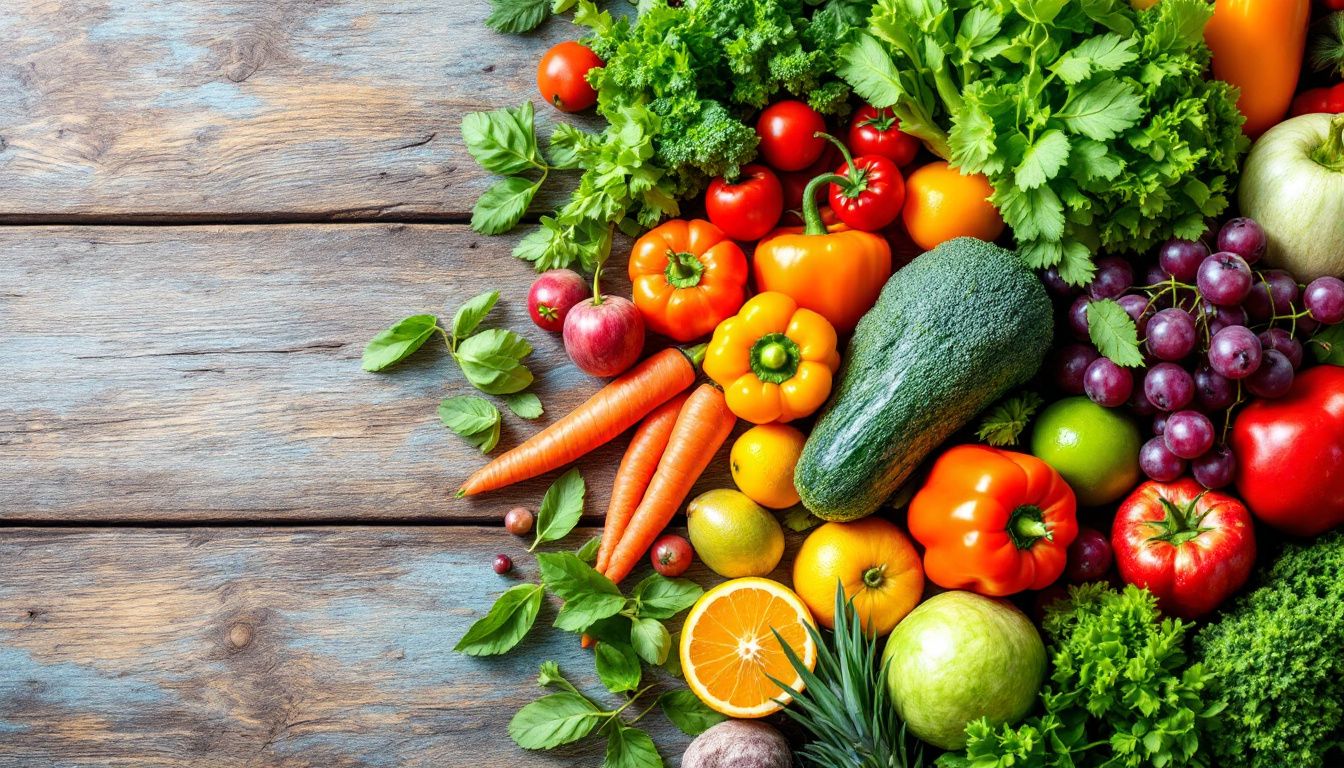Many people struggle with staying healthy and avoiding diseases like diabetes or heart problems. Polyphenols, found in plants, are powerful antioxidants that can help protect your body from damage caused by free radicals.
Thank you for reading this post, don't forget to subscribe!This blog explains what polyphenols are, how they benefit your health, and the best foods to eat for them. Keep reading—you’ll discover easy ways to boost your diet naturally!
Key Takeaways
- Polyphenols are powerful plant compounds found in foods like berries, tea, dark chocolate, and red wine. They fight free radicals and reduce oxidative stress.
- There are four main types of polyphenols: flavonoids (found in green tea and citrus fruits), phenolic acids (in coffee and whole grains), stilbenes (like resveratrol in red wine), and lignans (in flaxseeds).
- Health benefits include better heart health, cancer prevention, improved brain function, diabetes management, and reduced inflammation. Eating 650 mg or more daily can lower risks of chronic illnesses.
- Top sources include apples, spinach, almonds, coffee, turmeric, olive oil, and artichokes. Combining these with healthy fats or black pepper enhances absorption for maximum benefits.
- Whole foods provide the best nutrients compared to supplements but athletes or those unable to eat enough polyphenol-rich foods may consider using concentrated forms responsibly under guidance.
What are Polyphenols?
Polyphenols are natural compounds found in plants. They act as antioxidants and protect the body from damage caused by free radicals.
Definition and Basic Properties
Polyphenols are natural plant compounds with over 8,000 types identified. They act as antioxidants and protect cells from damage caused by free radicals. These compounds help fight oxidative stress and play a role in slowing aging and reducing chronic disease risks like heart diseases or type 2 diabetes.
Plants produce polyphenols to shield themselves from UV rays or harmful pathogens. Found in fruits, vegetables, tea, dark chocolate, and red wine—these polyphenols improve gut health and support the immune system.
Their strong anti-inflammatory properties also aid in maintaining overall health.
Major Classes of Polyphenols
Polyphenols are plant compounds with many health benefits. They are divided into four main classes based on their structure and function.
- Flavonoids
Flavonoids are the most common type of polyphenols in foods. They include six subclasses, such as flavonols, flavones, flavanones, isoflavones, anthocyanins, and flavan-3-ols. Green tea, black tea, dark chocolate, berries, and citrus fruits are rich in these compounds. - Phenolic Acids
Phenolic acids are another important group of polyphenols. They help reduce oxidative stress by fighting free radicals. Foods like whole grains, coffee, and certain vegetables contain high levels of phenolic acids. - Stilbenes
Stilbenes have strong antioxidant properties that improve heart health and lower cholesterol levels. Resveratrol is a well-known example found in red wine and grapes. - Lignans
Lignans support gut health and may reduce risks of hormone-related cancers like breast or prostate cancer. You can find lignans in flaxseeds, sesame seeds, nuts, and whole grains.
Their unique roles play a big part in disease prevention—as explored next!
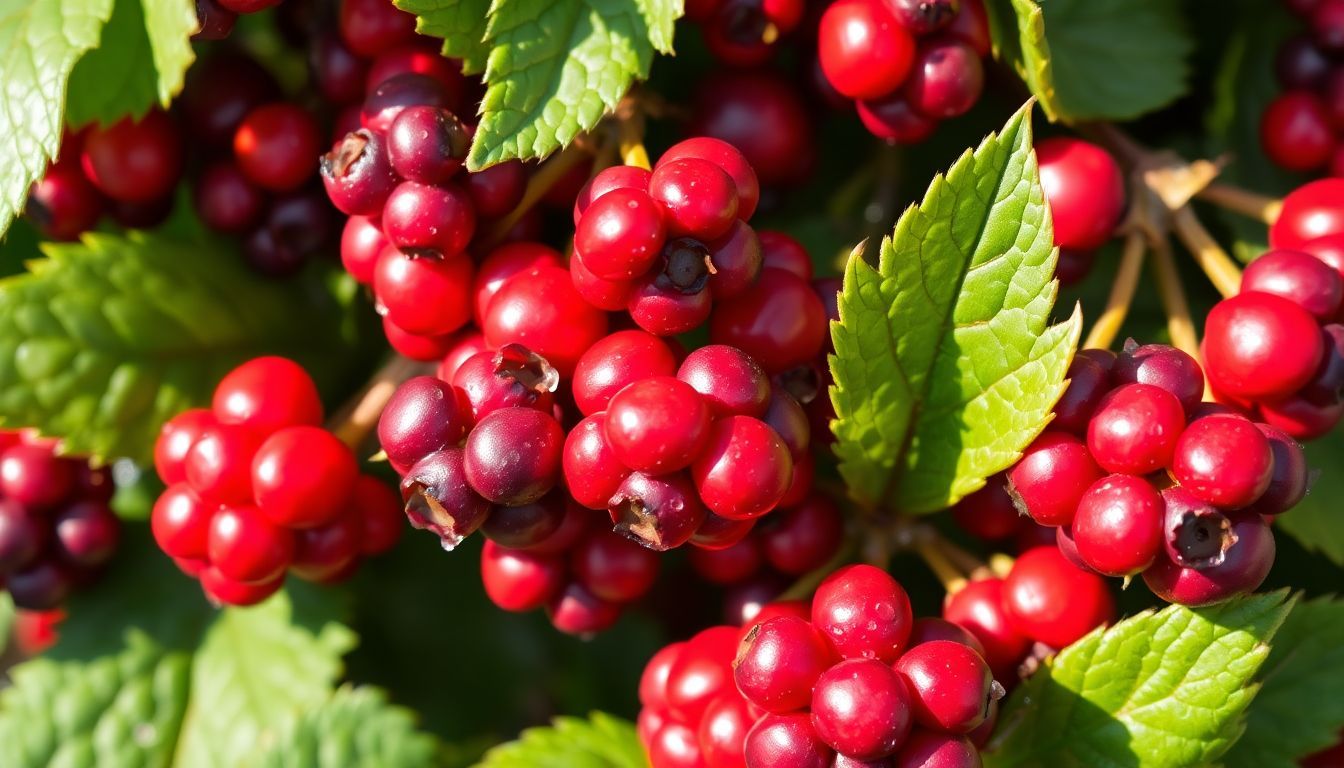
Health Benefits of Polyphenols
Polyphenols help protect the body from harm caused by free radicals and oxidative stress. They also support overall health by reducing chronic inflammation and improving how cells function.
Cardio-Protective Effects
Polyphenols support heart health in many ways. They improve endothelial function, helping blood vessels stay flexible and healthy. This improves blood flow and can reduce the risk of cardiovascular diseases.
Polyphenols also fight chronic inflammation, which is a major cause of heart disease. By lowering oxidative stress caused by free radicals, they protect the heart from damage.
They also inhibit LDL oxidation—a key factor in forming atherosclerotic plaques that block arteries. Studies show people who consume over 650 mg of polyphenols daily have lower risks of death from heart-related issues.
Foods like green tea, dark chocolate, red wine, and berries are rich sources that may help reduce your chance of cardiac events.
A diet rich in polyphenols contributes to better heart health and longer life.
Anti-Cancer Properties
Polyphenols help fight cancer by stopping tumor growth and killing harmful cells. They block cancer cells from multiplying and encourage them to self-destruct through a process called apoptosis.
Studies show their strong roles in preventing chronic illnesses, including different types of cancers like prostate or breast cancer.
Combining polyphenols with other compounds makes them even better at attacking cancerous cells. Their antioxidant effects reduce free radicals that damage DNA, which often leads to tumors.
Consuming foods rich in polyphenolic compounds, such as green tea, turmeric, berries, or dark chocolate, supports these powerful anti-cancer benefits naturally.
Benefits Against Diabetes
Fighting cancer is crucial, but managing diabetes matters too. A polyphenol-rich diet can lower blood sugar levels and combat insulin resistance. These antioxidants help improve insulin secretion and sensitivity, which are key for type 2 diabetes management.
Compounds like ellagic acid reduce glucose absorption in the gut. This keeps sugar spikes in check after meals. Studies show higher polyphenol intake links to a reduced risk of type 2 diabetes.
Green tea, dark chocolate, and red wine are all great sources to include daily—every bit helps!
Neuroprotective Benefits
Polyphenols protect the brain from damage. Resveratrol, found in red wine, activates SIRT-1. This mimics the effects of caloric restriction and can slow aging in brain cells. Anthocyanins, present in berries like blueberries, fight oxidative stress caused by free radicals.
They also lower the risk of neurodegenerative diseases such as Alzheimer’s disease and Parkinson’s disease.
These compounds support better memory and may slow cognitive decline over time. Polyphenols improve blood flow to the brain and strengthen neural connections for sharper thinking. Their roles don’t end here—they also reduce chronic inflammation linked to nerve damage…
laying a foundation for more health benefits ahead!
Anti-Inflammatory and Antioxidant Effects
Polyphenols reduce chronic inflammation by calming the immune system. They neutralize free radicals, cutting oxidative stress that damages cells. This lowers risks of heart diseases and conditions like Alzheimer’s disease and Parkinson’s disease.
Anti-inflammatory properties in plant-based foods combat systemic inflammation tied to type 2 diabetes and coronary heart disease.
These compounds boost protection against harmful oxidation in the body. Green tea, dark chocolate, and red wine are rich sources that improve good cholesterol levels while lowering bad cholesterol.
By fighting oxidative stress, polyphenols support healthier blood vessels and may help prevent atherosclerotic lesions linked to elevated cholesterol.
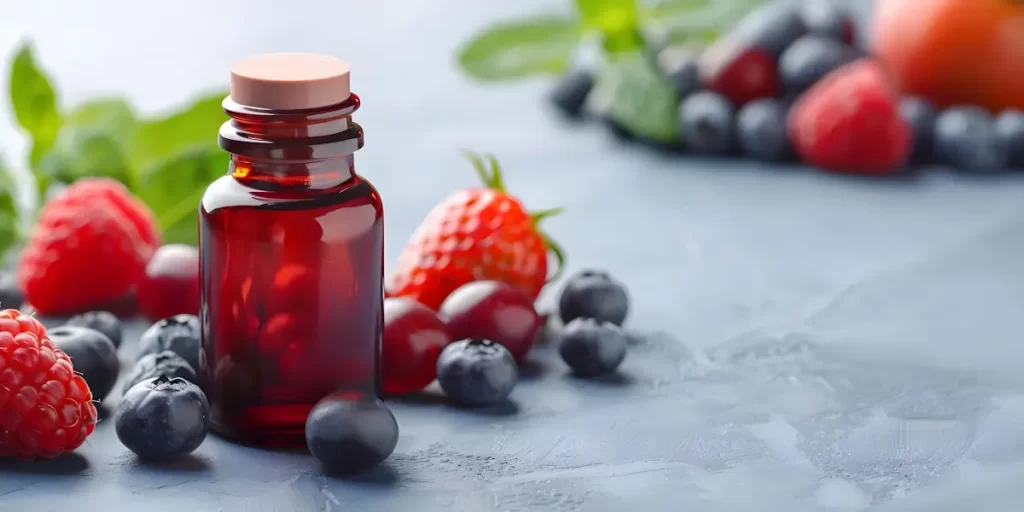
Polyphenols in Disease Prevention and Management
Polyphenols play a big role in keeping the body healthy. They can help protect against long-term illnesses like heart problems, diabetes, and brain disorders.
Role in Cardiovascular Health
These antioxidants fight oxidative stress, a major cause of cardiovascular diseases. Reactive oxygen species (ROS) damage blood vessels and lead to conditions like heart disease. Polyphenols counteract ROS, reducing risk factors for heart disease such as endothelial dysfunction and chronic inflammation.
Resveratrol, found in red wine, protects against coronary heart diseases by improving blood flow. EGCG from green tea lowers oxidative stress and supports heart health. A polyphenol-rich diet with foods like dark chocolate and berries has been linked to lower risks of atherosclerosis and other cardiovascular issues.
Impact on Cancer Prevention
Polyphenols play a key role in cancer prevention. Diets high in polyphenol-rich foods, like fruits and vegetables, lower the risk of several cancers. These antioxidants fight free radicals and reduce oxidative stress—both linked to cancer growth.
They also influence cell signaling pathways that affect cancer progression.
Ellagic acid, found in berries and nuts, promotes apoptosis or programmed cell death in harmful cells. Polyphenols from green tea show effects against prostate cancer by slowing tumor growth.
Red wine contains flavonoids that may protect healthy cells while disrupting cancerous ones. Regular consumption of plant-based foods packed with these compounds can support overall health and help combat risks tied to various cancers.
Effectiveness in Diabetes Management
Polyphenols help control blood sugar levels in people with type 2 diabetes. They improve insulin sensitivity and lower fasting blood glucose levels. Compounds like ellagic acid also block enzymes that break down sugars, reducing spikes after meals.
Studies show that a polyphenol-rich diet can support better glucose metabolism. Foods like dark chocolate, green tea, and fruits such as berries play a key role here. These plant-based foods may even open doors for new diabetes treatments by regulating glucose effectively.
Contributions to Neurological Health
Managing diabetes effectively can also protect brain health. High blood sugar levels may increase the risk of neurodegenerative diseases over time. Polyphenols play a role in defending the brain against such damage.
Certain compounds like resveratrol, found in red wine, and EGCG, present in green tea, help reduce oxidative stress. These antioxidants target free radicals that harm brain cells. Blueberries and dark chocolate also support cognitive performance by boosting blood flow to the brain.
Regular intake of polyphenol-rich foods lowers risks for conditions like Alzheimer’s disease and Parkinson’s disease by promoting healthy neurons and reducing inflammation.
Top Dietary Sources of Polyphenols
Polyphenols are found in many tasty foods and drinks—learn where to get them for a healthier diet.
Fruits: Apples, Berries, and Plums
Apples offer a rich source of polyphenols, helping combat oxidative stress and support heart health. They contain compounds like flavonoids that show strong antioxidant effects. Berries are even more powerful—chokeberries provide 1,123 mg of polyphenols per half-cup, while elderberries deliver 870 mg in the same serving.
Blueberries pack 535 mg per half-cup and help reduce chronic inflammation.
Plums also contribute to a polyphenol-rich diet, improving gut health by supporting the microbiome. These fruits are linked to lower blood sugar spikes and better insulin sensitivity.
Including these options regularly may protect against heart disease and type-2 diabetes while boosting overall immune system strength.
Vegetables: Spinach, Onions, and Artichokes
Spinach, onions, and artichokes pack a punch with polyphenols. A small artichoke has 260 mg of these antioxidants. Red onions contribute 168 mg in one small piece. One cup of fresh spinach offers 40 mg—great for your health.
Eating 2.5 to 3 cups of vegetables daily supports heart health and fights chronic inflammation. Spinach aids gut health, while onions target free radicals that cause oxidative stress.
Artichokes stand out as a top choice for boosting antioxidant effects… Next up: nuts and seeds!
Nuts and Seeds: Almonds, Chestnuts, and Flaxseeds
Almonds pack 53 mg of polyphenols per ounce. They also assist with heart health and reducing free radicals. Add them to a snack or sprinkle on salads for a crunchy boost.
Chestnuts provide 347 mg of polyphenols per ounce, making them a rich source. They support antioxidant effects and help combat oxidative stress. Roast them for a delicious treat during colder months.
Flaxseeds contain 229 mg of polyphenols in just one tablespoon. These tiny seeds improve insulin sensitivity and aid gut health by supporting the gut microbiome. Mix into smoothies or oatmeal for added nutrition!
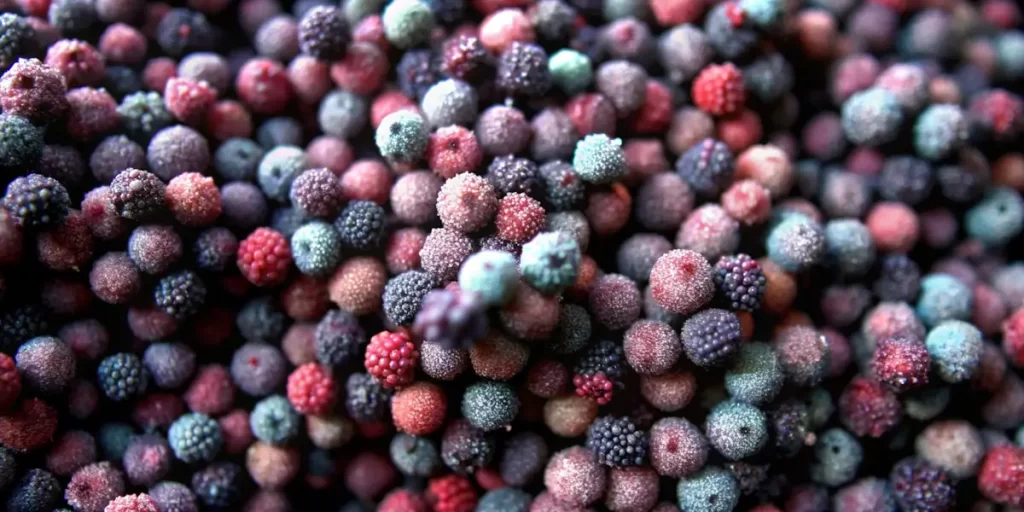
Beverages: Tea, Coffee, and Red Wine
Tea, coffee, and red wine are rich in polyphenols. A single cup of brewed coffee contains 35 mg of these antioxidants. One glass of tea or red wine holds about 100 mg. Together, these drinks contribute significantly to total polyphenol consumption.
Among Japanese middle-aged women, beverages make up 79% of their daily polyphenol intake. Green tea and black tea provide strong antioxidant effects due to flavonoids. Coffee may help combat insulin resistance by lowering blood sugar levels.
Red wine supports heart health and reduces oxidative stress with its resveratrol content. These drinks are simple yet powerful additions to a polyphenol-rich diet.
Oils and Spices: Olive Oil and Turmeric
Extra virgin olive oil (EVOO) is rich in polyphenols. These compounds fight oxidative stress and inflammation. Regular use can help lower risks of heart disease and chronic inflammation.
It also improves insulin sensitivity, supporting type 2 diabetes management. EVOO’s antioxidants protect cells from damage caused by free radicals.
Turmeric contains curcumin, a powerful compound with anti-inflammatory effects. Studies suggest it may improve vascular health and potentially lower cholesterol levels. Its benefits extend to fighting oxidative stress and promoting gut health.
This spice has also shown promise in reducing risk factors for Alzheimer’s disease and improving overall immune system function.
Polyphenols as Supplements
Polyphenol supplements can help fill gaps in your diet, but whole foods often provide more benefits—explore when they might be useful.
Comparing Food Sources with Supplements
Food sources and supplements offer different ways to include polyphenols in one’s diet. Understanding these differences helps make better choices for health. Below is a table comparing the two options:
| Aspect | Food Sources | Supplements |
|---|---|---|
| Nutritional Value | Rich in other nutrients like fiber, vitamins, and minerals. Examples include berries, spinach, and turmeric. | Contain concentrated polyphenols but lack additional nutrients found in whole foods. |
| Gut Health Benefits | Promote healthy gut bacteria due to natural compounds in whole foods. | Lack fibers and other elements essential for gut health support. |
| Absorption | Better absorbed when consumed with other natural compounds in foods. | May have lower absorption rates without proper food combinations. |
| Regulation | Whole foods are safe and do not require external regulation. | Supplements lack strict regulation, raising quality concerns. |
| Side Effects | Unlikely when consumed as part of a balanced diet. | High doses may risk kidney damage or other health issues. |
| Convenience | Require preparation and meal planning but offer diverse flavors. | Easy to consume but lack the enjoyment and culinary variety of foods. |
Whole foods stand out for their additional nutrients and safety. Supplements, though convenient, may not offer the same overall benefits for long-term health.
When to Consider Supplements
Athletes with low polyphenol intake from food may benefit from supplements. These can help reduce oxidative stress and muscle damage caused by intense exercise. They may also aid in faster recovery after workouts, improving performance over time.
People struggling to get enough polyphenols through a balanced diet could consider supplements too. While fruits and vegetables like berries or spinach are nutritious, supplements provide a concentrated dose.
This makes it easier to support heart health, manage chronic inflammation, or even combat insulin resistance effectively.
Practical Tips for Incorporating Polyphenols into Your Diet
Add more polyphenol-rich foods like berries, green tea, and dark chocolate to your meals—small changes can make a big difference for your health. Read on for simple ways to boost intake!
Daily Intake Recommendations
There are no strict intake guidelines for polyphenols. Experts suggest eating a variety of plant-based foods daily for the best results. Fruits, vegetables, nuts, seeds, and spices are excellent options to include in meals.
Drinking green tea or black tea can boost antioxidant levels too.
Moderate servings of dark chocolate and red wine also help increase polyphenol intake. For example, enjoy a small piece of dark chocolate after dinner or a glass of red wine on occasion.
Focus on whole foods rather than processed ones to get the most health benefits from these compounds… Learn how different food combinations affect absorption next!
Combining Foods for Optimal Absorption
Pairing certain foods boosts polyphenol absorption. Eating dark chocolate with fruits like apples or berries enhances the antioxidants’ effects. Olive oil combined with vegetables such as spinach or artichokes improves nutrient uptake.
Some vitamins and fats also help. For example, consuming green tea alongside a meal rich in healthy oils, like olive oil or flaxseeds, increases its health benefits. Spices like turmeric work best when paired with black pepper, enhancing curcumin’s bioavailability by up to 2,000%.
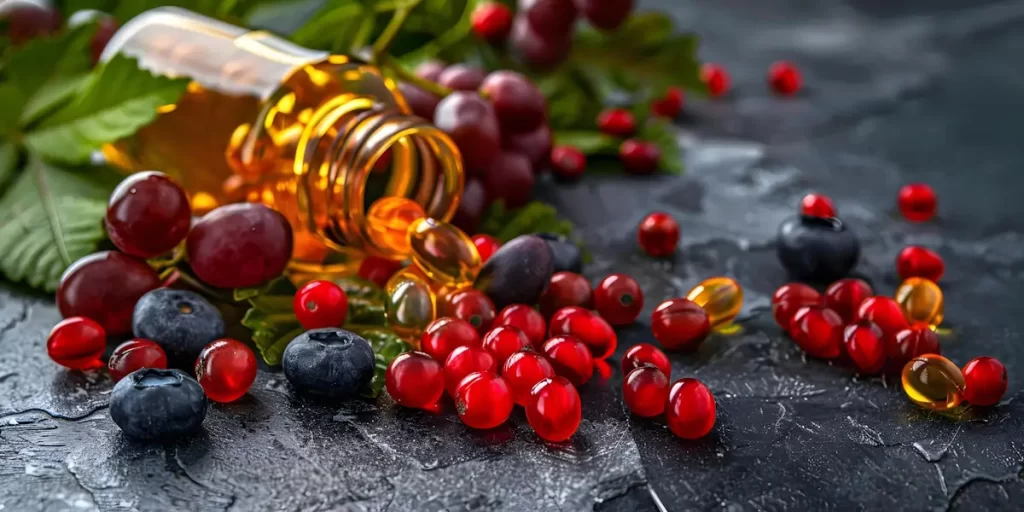
Essential Nutrients for Health: Beyond Polyphenols
Fruits and vegetables provide more than just polyphenols. Vitamins like C, D, and E play a big role in fighting oxidative stress. Minerals such as magnesium and zinc support the immune system and blood sugar levels.
Fiber from plant-based foods helps improve gut health too.
Healthy fats are also key for heart health. Omega-3 fatty acids found in flax seeds or black olives can reduce chronic inflammation and lower risks of cardiovascular diseases. Protein-rich nuts like almonds boost muscle repair while supporting blood sugar balance.
Each nutrient works alongside others to keep your body strong!
Conclusion
Polyphenols pack a big punch for your health. They fight free radicals, reduce inflammation, and protect against diseases like heart issues, diabetes, and cancer. You can find these antioxidants in foods like berries, tea, nuts, and spices.
A diet rich in polyphenols boosts overall wellness—one bite at a time! Small changes to what you eat can make a huge difference.
For more comprehensive insights on the role of other vital nutrients in optimizing your health, explore our guide on essential minerals and their benefits.
